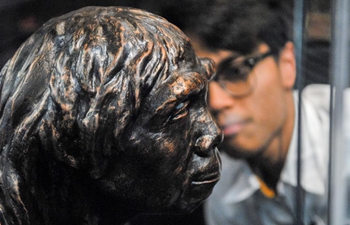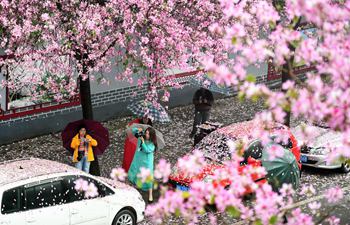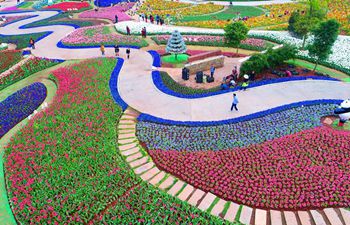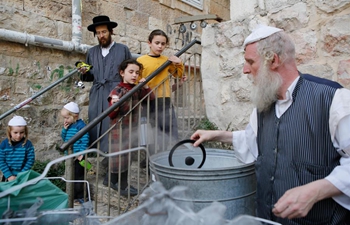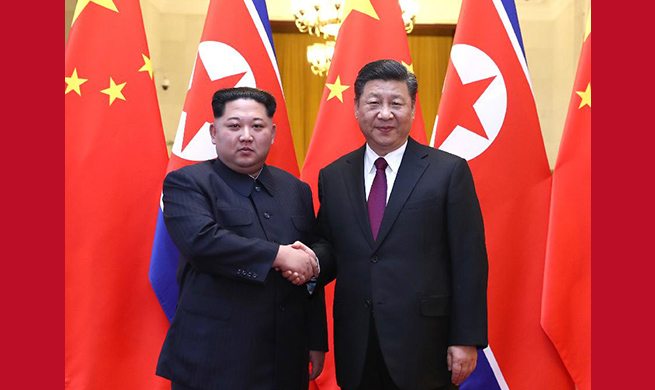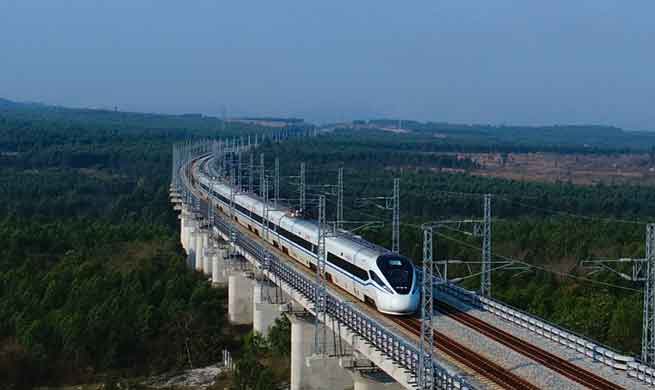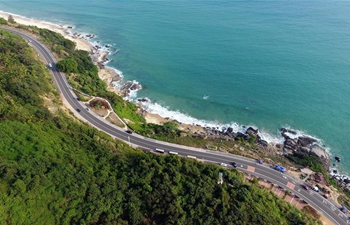GAZA, March 29 (Xinhua) -- Organizers said Thursday that the "Great March of Return" on March 30-May 15 near the borders between eastern Gaza Strip and Israel will be peaceful and non-violent.
Ahmed Abu Rteima, spokesman of the march said in an emailed press statement that the "March of Return is completely a peaceful procession and it is a procession of human right that demands an implementation of the right of return."
The spokesman was responding to Israeli army officials and media reports warning that the march near the borders for one month and a half might be dangerous and lead to bloody confrontations with Israel.
He went on saying that the arms of the demonstrators "will be only the camera and the word," assuring that "there will be no burning of tires, stones throwing or any confrontation with the Israeli occupation forces."
"We are talking about a new style of peaceful resistance. Our goal is to revive our cause politically and peacefully," said Abu Rteima.
He insisted that the demonstrators will stay 700 meters away from the fence of the borders to "avoid any confrontation and guarantee a success of our mission and succeed to send our message to the world."
The activity might be a nuisance to the Israeli army, which since 2008 has imposed a buffer zone of 300 meters deep along the Gaza perimeter fence against hostile attacks of Palestinian militant groups.
The army warned in a statement that "these demonstrations might be used as a cover to damage the security infrastructure or harm the Israeli citizens or soldiers." The Israeli army vowed that its forces would respond with a strong hand against such attempts.
Earlier this week, Israeli planes dropped leaflets and flyers in Arabic to the eastern areas of the Gaza Strip, warning residents not to approach the borders fence. Israeli forces deployed along the eastern border of the enclave and often face Palestinian popular protests with tear gas, rubber and live bullets.
The Palestinian Ministry of Health in the Gaza Strip has announced that it will increase preparedness and readiness in all hospitals and health centers to keep up with the march.
The blockade has led to a high rate of poverty and unemployment among the 2-million population of the Gaza Strip and a severe shortage of basic services, especially electricity, drinking water and infrastructure.
Hamas leader Salah al-Bardaweel said Tuesday that "the march reflects the anger of the Palestinian people and their demands for their right to return."
"The Palestinians will express in a peaceful and popular manner their right of return to our homes and live a decent life, and no one has the right to respond to us or fear the Israeli threats," Bardaweel told Xinhua.
He warned Israel "of committing folly actions against the peaceful popular march and the new rules of engagement."
The event is held after more than 100 days of U.S. President Donald Trump's declaration that Jerusalem is the capital of Israel and plan to move the U.S. embassy there from Tel Aviv soon.




